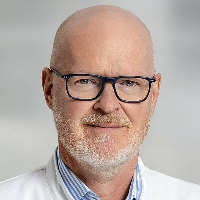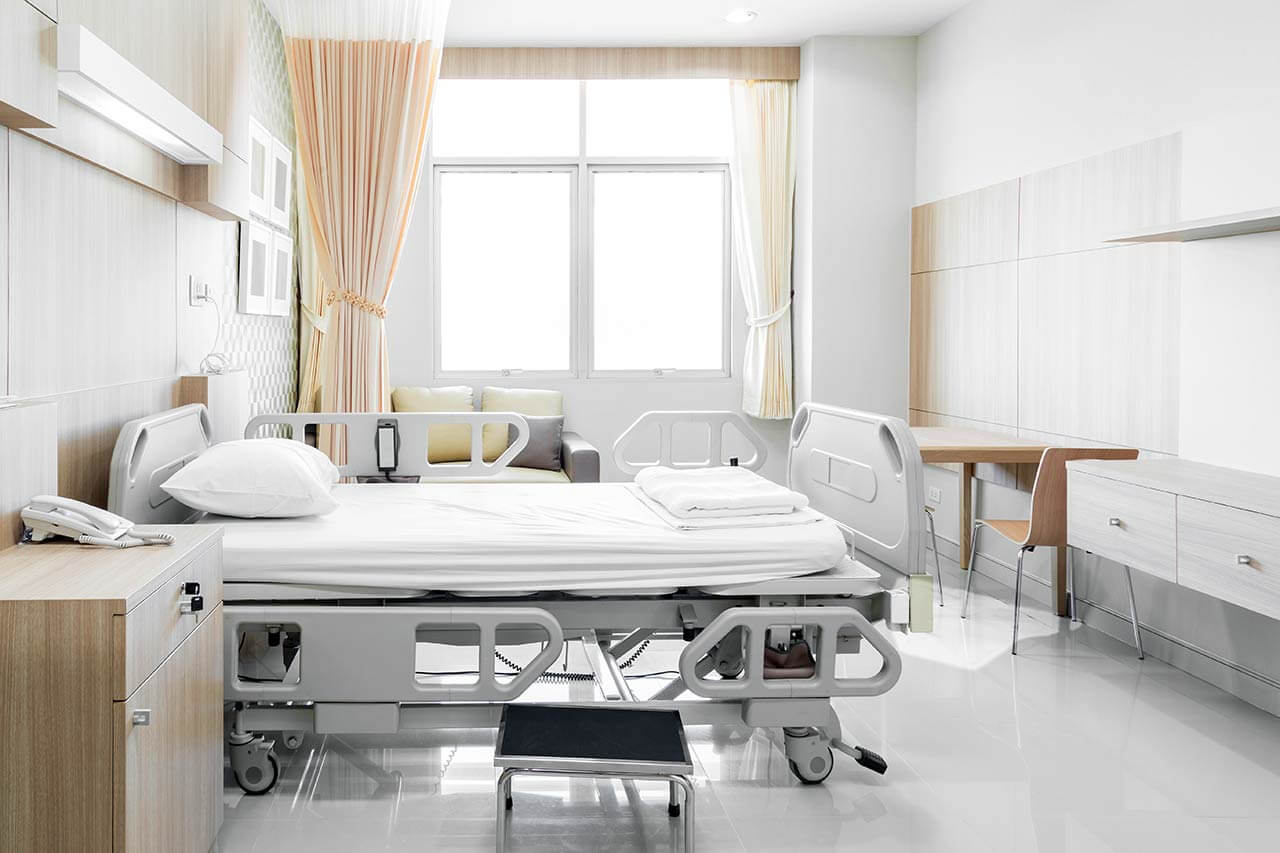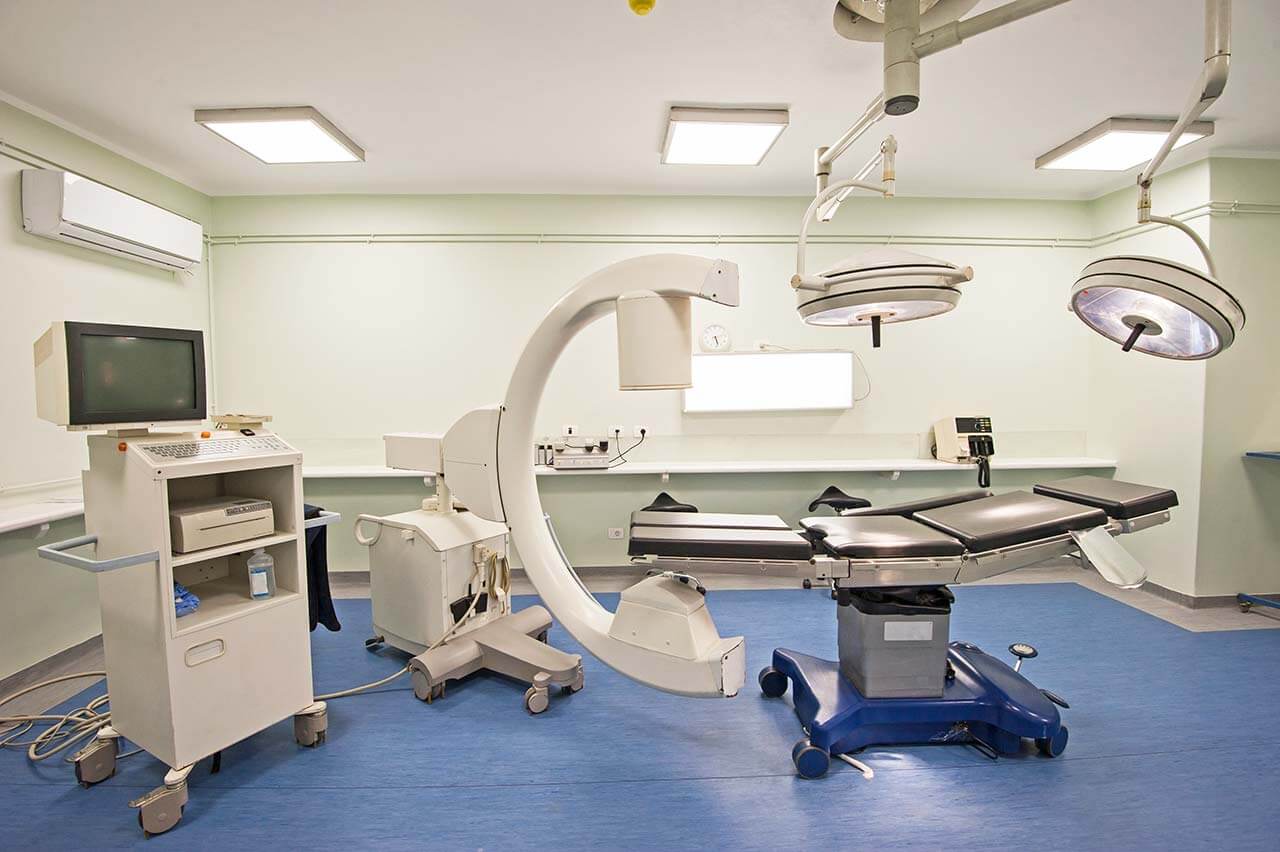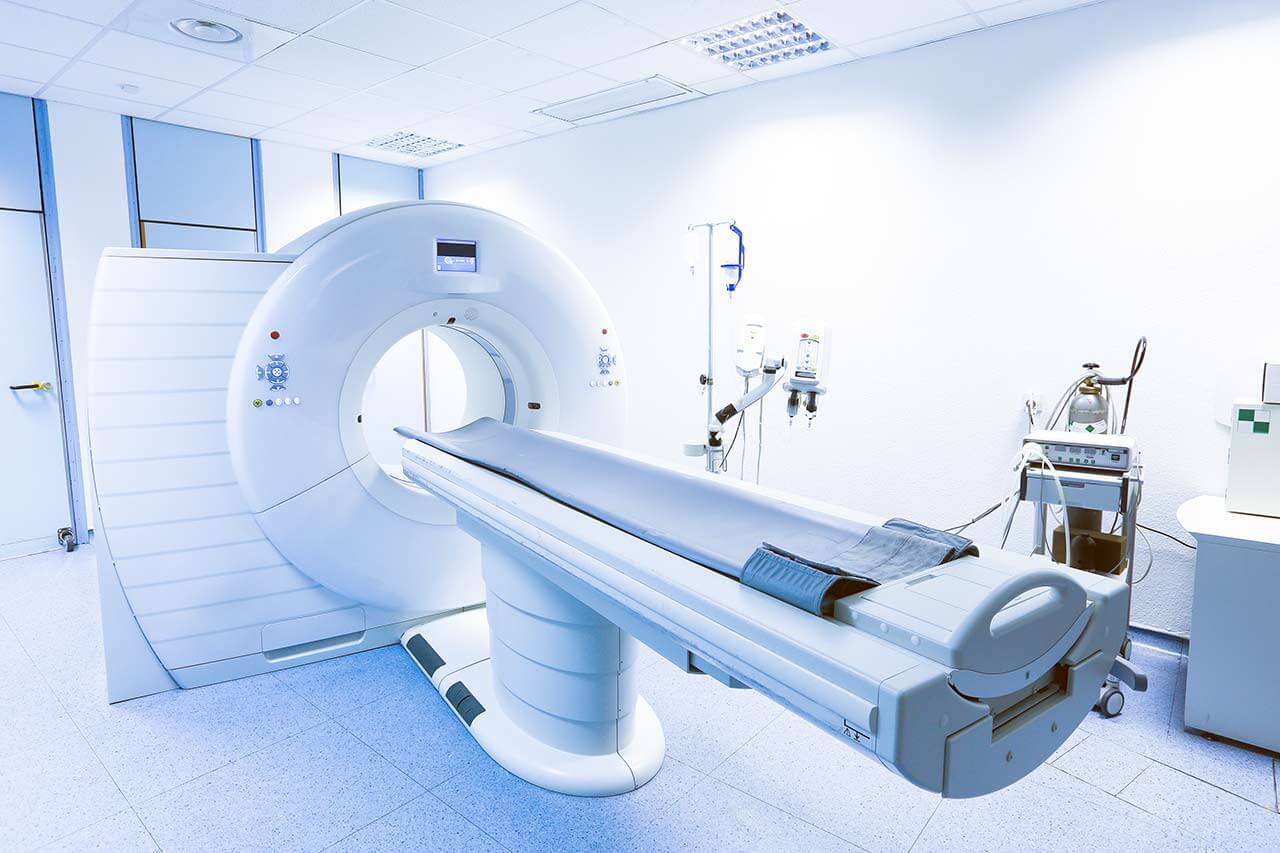
About the Department of Nuclear Medicine at Helios Hospital Berlin-Buch
The Department of Nuclear Medicine at the Helios Hospital Berlin-Buch offers the full range of diagnostic and therapeutic procedures using modern radioactive substances. The diagnostic options include scintigraphic studies of the lungs, heart, brain, kidneys, lymph nodes, bones, including in small patients. In the field of therapy, one of the priority focuses is the use of radioiodine therapy for thyroid pathologies. Medical care and patient care are provided by highly qualified doctors and nursing staff who believe that the health and wellbeing of their patients is a top priority.
The department is headed by Prof. Dr. med. Stefan Dresel. The doctor trained in the USA for two years and gained his invaluable clinical experience while working as a Senior Physician in the Department of Nuclear Medicine at the University Hospital of Ludwig Maximilian University of Munich. Prof. Stefan Dresel devoted more than 22 years of his life to nuclear medicine and today has a high reputation in his area of specialization in Germany. Of particular interest to him is the treatment of thyroid diseases, Lu-177-DOTATOC therapy for neuroendocrine tumors, and Lu-177 PSMA therapy for prostate cancer. The doctor also devotes a lot of time to work on scientific publications and the exchange of his experience at medical conferences.
A special offer in the field of diagnostics is positron emission tomography (PET). In the course of the study, the doctors use radioactive glucose, which makes it possible to assess the condition and functioning of almost all organs of the human body. Oncology is the main area of application for positron emission tomography (PET), because many types of cancer, such as lung cancer, colon tumors or lymphomas, consume glucose intensively. Thus, with the help of this study, the doctors can exclude or identify tumors and their metastasis in the early stages. In addition, this study is widely used to diagnose neurological disorders (for example, Alzheimer's disease, epilepsy, Parkinson's disease). PET is an effective method for the diagnostics of heart pathologies. The department also offers a combined PET-CT method, which allows to image not only the structure of internal organs and anatomical structures of the body, but also metabolic processes.
The specialists of the department provide the diagnostics and treatment of thyroid diseases. To identify thyroid pathologies, the doctors perform scintigraphy. During the study, the patient is administered an iodine-containing contrast agent, which selectively accumulates in the thyroid gland tissue. The thyroid pathologies can be treated using radioiodine therapy. During therapy, the patient takes radioactive iodine in the form of a small capsule. In more than 90% of all cases of therapy, the doctors manage to achieve a positive treatment result. The advantage of this therapy is that it does not cause any side effects for the patient.
The department’s range of medical services includes:
| Diagnostics |
|
| Therapy |
|
| Other diagnostic and therapeutic options |
Curriculum vitae
Education
- 1984 - 1991 Study of Human Medicine at Ludwig Maximilian University of Munich.
- 1993 Doctorate.
Professional Career
- 1992 - 1994 Research Fellow, Department of Radiology, University Hospital of Ludwig Maximilian University of Munich.
- 1994 - 1995 Research Fellow, Department of Nuclear Medicine, University Hospital of Ludwig Maximilian University of Munich, Campus Grosshadern.
- 1995 Research Fellow, Institute for Diagnostic Radiology and Magnetic Resonance Imaging, University Hospital of Ludwig Maximilian University of Munich.
- 1996 Senior Physician, Department of Nuclear Medicine, University Hospital of Ludwig Maximilian University of Munich, Campus Innenstadt.
- 1996 Board certification in Nuclear Medicine.
- 1996 - 1998 Research Fellow, Department of Radiology, University of Pennsylvania, Philadelphia, USA.
- 1998 - 2004 Senior Physician, Department of Nuclear Medicine, University Hospital of Ludwig Maximilian University of Munich, Campus Innenstadt.
- 201 Habilitation and Venia legendi in Nuclear Medicine.
- Since 2004 Chief Physician of the Department of Nuclear Medicine at the Helios Hospital Berlin-Buch, as well as Section Head at the Department of Nuclear Medicine at the Helios Hospital Robert-Roessle, Berlin.
- Since 2007 Extraordinary Professor of Ludwig Maximilian University of Munich.
- Since 2008 Head of the Specialized Group on Radiology, Radiation Therapy and Nuclear Medicine.
Clinical Focuses
- Diagnostics and therapy of benign and malignant thyroid diseases.
- PET-CT diagnostics using F-18 FDG, Ga-68 PSMA and Ga-68 Dotatoc.
- Radioreceptor therapy for neuroendocrine tumors using Lu-177 Dotatoc.
- Treatment of metastatic prostate cancer using Lu-177 PSMA.
- Treatment of liver tumors and liver metastasis using selective internal radiation therapy.
Photo of the doctor: (c) Helios Klinikum Berlin-Buch
Sources:





